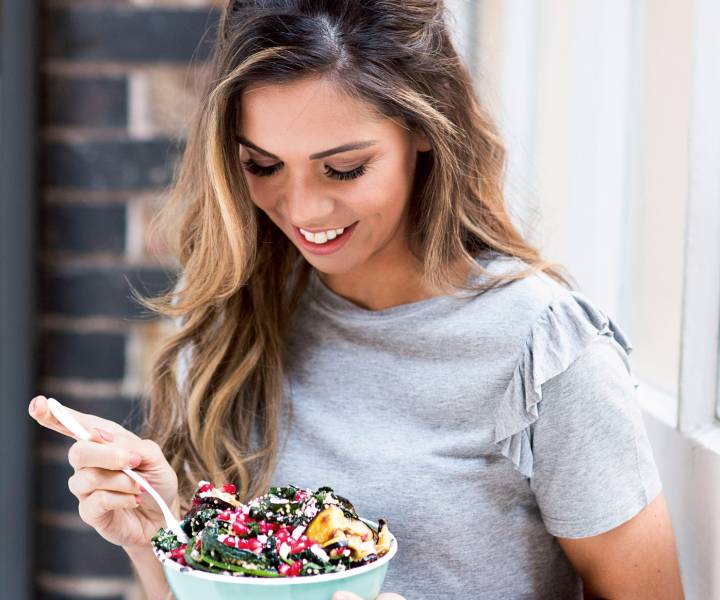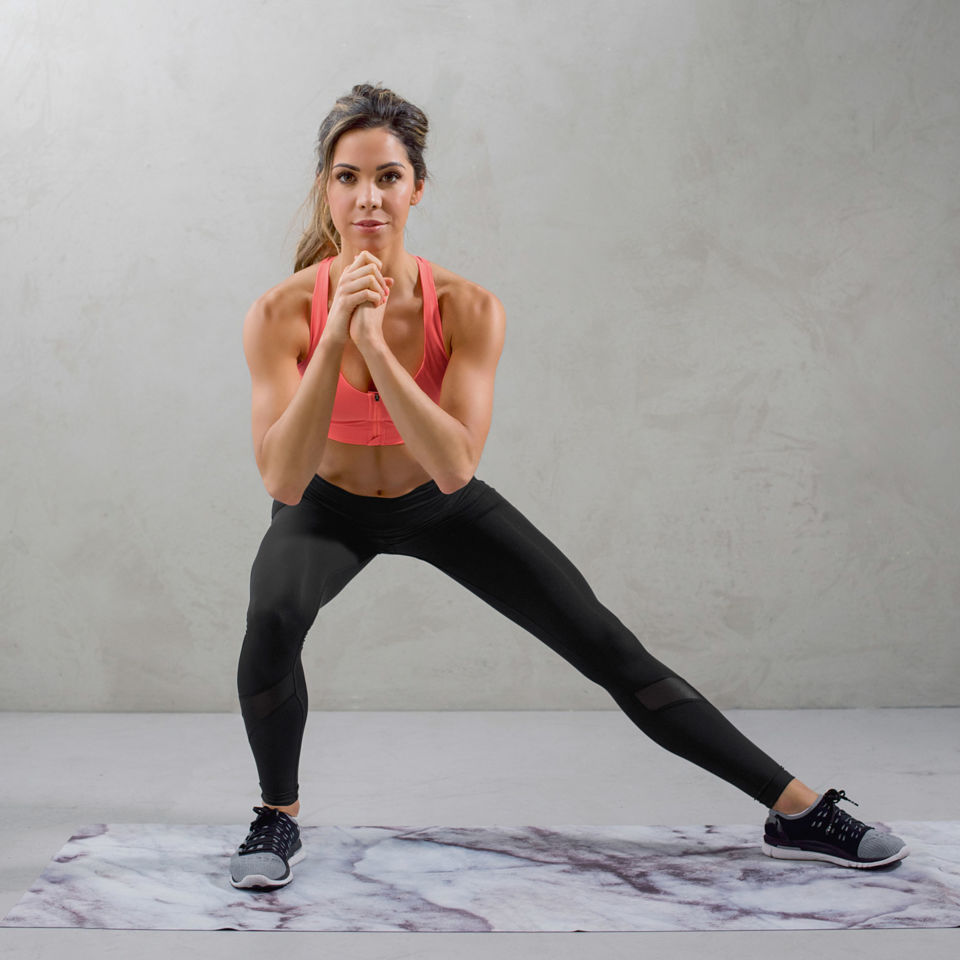Food
Meet Dr Hazel Wallace: The Food Medic
by Sarah Maber

Dr Hazel Wallace, 26, works as a junior doctor in London and is a qualified personal trainer. Now she has turned her personal interest in healthy eating into a new recipe book, The Food Medic.
Full-fat or fat-free; high-protein or more fibre… there are so many conflicting messages about food out there it’s hard to know what’s healthy and what’s not.
I agree! That’s why I wrote the book. I found it confusing and I’ve had medical training. Nutrition is not a subject that is heavily focused on at medical school in the UK and across the world, which is surprising given that most healthcare systems, including the NHS, aim to focus as much on promoting wellness as they do treating and managing disease. I had a basic understanding of nutrition and the ability to read scientific papers and journals, so decided to educate myself on this topic. That’s how The Food Medic was born.
Your book is about teaching people to eat healthily – have you always had such a nutritious diet?
No – I completely lost my way at university and started to develop a really unhealthy relationship with food. My friends were going out a lot and eating takeaways, and I did what they did. When I was revising for exams, I’d eat whatever comfort food I could get my hands on. I was living on bags of crisps, bowls of cereal and microwaveable meals. Occasionally, I’d try to follow a ‘healthy’ diet, but for me that meant cereal bars, diet yogurts and ‘slimming’ snacks. I wasn’t getting enough protein and my diet was full of sugar.

What prompted your food epiphany?
I was going through the photos from a university night out and the penny dropped. I could hardly recognise myself because of how bloated I looked. I promised myself that I would never let myself feel that uncomfortable and ashamed of my body again. I had exams coming up, so I decided to join the gym to keep me motivated and energised while I was studying. I also started to do some research into nutrition and tweak my diet. I’ll put my hands up now and admit that it wasn’t easy completely transforming my diet, and it didn’t happen overnight. But I did start to cook meals from scratch, try new foods and experiment with different ingredients. Something inside me changed and my passion for cooking was reignited.
What makes your book different from the other nutrition and diet books on the shelves?
Well, firstly, I’m a doctor and a personal trainer. Secondly, I’ve completely overhauled my own diet and can see the results. But also, my recipes are not fancy. They are not anything gourmet. But they taste good and they are full of healthy ingredients. I don’t exclude any food group. All the recipes in my book just focus on using wholesome, nutritious ingredients.
Why can’t people get this sort of advice from their GP?
It’s difficult to offer good nutritional advice in a 10-minute consultation. What I’d like to see is surgeries or hospitals offering nutritional seminars with a doctor and dietician. We already do that for diabetics, so why can’t we have it for everyone? That is where we should be looking at spending our money in healthcare. Although nutrition is just one pillar of the foundation to good public health, it massively contributes to the prevention of some of the most common killers: heart disease, stroke and cancer.

Can we really tackle disease through learning about nutrition?
We should be looking at what people put on their plates before we start prescribing pills. I personally feel it is something that the medical profession overlooks. Lifestyle disease is related to how we live and the food we eat. Diseases like diabetes, obesity, stroke and heart disease are all linked to what we eat, and we know that through dietary control we can help prevent them from happening. That’s not to say it’s too late for people who have already been diagnosed; I’m trying to make it clear to people that we can do so much ourselves at home for our health.
Any tips for novice healthy eaters?
Go back to basics. We should all be cooking wholesome good food and moving away from packaged meals, and choosing ingredients that are as close to the earth as you can get. Snack between meals – it tends to stop people feeling hungry and keeps energy levels stable. Buy jars of nuts and portion out a handful into a sandwich bag, maybe adding some blueberries. When I get home from work I like to have a cup of soup, maybe with a slice of bread. I eat a little dark chocolate every day. But if you do struggle with self-control, eliminate your trigger foods and reintroduce them slowly. Try a nice, sweet herbal tea at night. Be mindful and think about what you’re eating.
You are a qualified personal trainer, a junior doctor and you’ve written a book – how do you fit it all in?
I would love to give you a magic secret but there isn’t one! It’s time management and planning for the week ahead. I plan my meals and do a big online delivery; I make time at the weekends for social things. Everyone needs those breaks!
Do you join the other junior doctors when they let off steam in the pub?
Honestly, none of us are really mad for going out. We mostly go home early because we are so exhausted; we’re more interested in popping on a DVD than downing lots of drinks!
Five Food Medic favourites to try…
Linseeds (also known as flaxseeds)
These are a great addition to your diet – full of omega-3 and fibre.
Grains and legumes
Chickpeas, legumes, rice and lentils are packed with fibre and protein and can help reduce high cholesterol levels. I tell people to get lots of grains into their diet.
Vegetables
Eat as many vegetables as you can; eating the rainbow is really important in terms of disease prevention. Get veggies into smoothies, soups and stir-fries.
A really good olive oil
Use extra-virgin olive oil – it is high in heart-friendly unsaturated fat.
Oily fish – salmon or mackerel
These are really versatile. If you have two portions of oily fish a week, you’re getting a lot of omega-3 fats into your diet.












